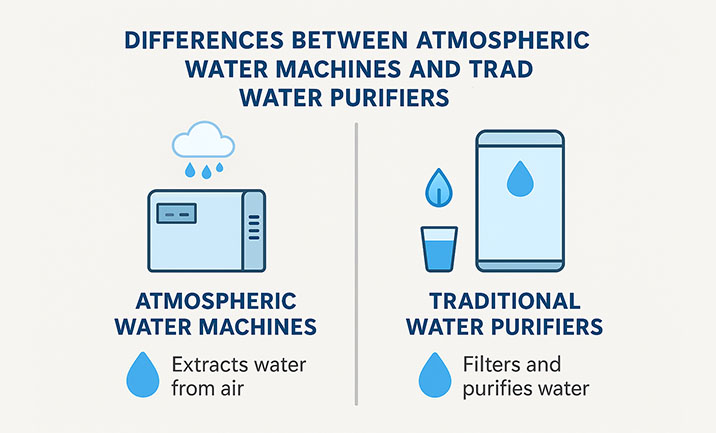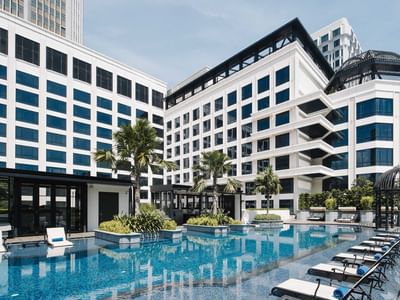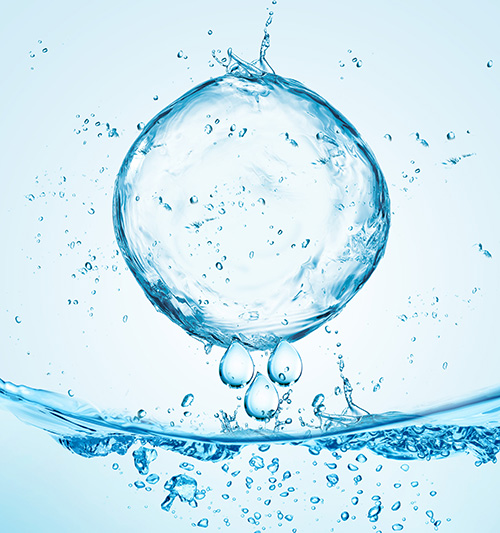How Atmospheric Water Generators Revolutionize Hotel Water Security & Guest Experience
Jul 20, 2025
For hoteliers navigating rising guest expectations, operational costs, and increasing environmental scrutiny, water security is moving beyond a basic utility concern. Enter Atmospheric Water Generators (AWGs), a transformative sustainable water technology poised to redefine how luxury and eco-conscious hotels source and deliver pristine water. This innovative solution offers compelling benefits for hotel operations, guest satisfaction, and environmental responsibility.
Beyond the Bottle: The Hotel Water Challenge
Traditional bottled water, once a staple of hotel minibars and conference rooms, presents significant drawbacks:
Environmental Impact: Plastic bottle waste contributes massively to pollution and landfill burdens, conflicting with sustainability goals guests increasingly demand.
Logistical Burden: Storage, inventory management, handling, and distribution are labor-intensive and space-consuming for hotel staff.
Cost Volatility: Bottled water costs fluctuate with supply chains and transportation fuel prices, impacting operational expenses.
Carbon Footprint: Manufacturing and transporting bottled water generates substantial greenhouse gas emissions.
Guest Perception: Environmentally aware guests often view single-use plastic negatively, potentially impacting brand image.
Atmospheric Water Generators: The On-Site, Sustainable Solution
Air to water technology offers a compelling alternative. AWGs extract pure, drinkable water directly from the humidity in the surrounding air. Here’s the simplified science:
Air Intake: Powerful fans draw ambient air into the unit.
Filtration: Advanced pre-filters remove dust, pollen, and airborne particulates.
Condensation: Air passes over cooled coils, causing moisture to condense into liquid water (similar to how dew forms).
Water Purification: The collected water undergoes rigorous multi-stage filtration (e.g., activated carbon, sediment filters, UV sterilization, mineralization) ensuring it meets or exceeds stringent drinking water standards.
Storage & Dispensing: Purified water is stored in hygienic, integrated tanks and dispensed chilled or at ambient temperature via taps or integrated systems.
Transforming Hotel Operations with AWG Technology
Integrating atmospheric water generators into a hotel environment unlocks multifaceted advantages:
Unparalleled Sustainability & Reduced Environmental Impact:
Eliminate Plastic Bottles: Dramatically reduce or completely remove single-use plastic water bottles from guest rooms, hotel restaurants, bars, spas, and meeting facilities.
Lower Carbon Footprint: Significantly cuts emissions associated with bottled water production and transportation, supporting ESG reporting and green certifications (LEED, BREEAM, Green Key).
Water Resilience: Provides a decentralized, onsite water source, reducing reliance on municipal supplies or deliveries, crucial in areas prone to droughts or infrastructure issues. This enhances hotel water security.
Elevating the Guest Experience:
Pure, Premium Water On-Demand: Offer guests unlimited access to fresh, great-tasting, chilled or ambient purified water directly in their hotel room (via taps or dedicated dispensers), enhancing convenience and perceived value.
"Wow" Factor & Innovation: Showcasing cutting-edge sustainable technology impresses eco-conscious travelers and positions the hotel brand as a forward-thinking leader.
Enhanced Wellness: Providing consistently pure water supports guest health and wellness initiatives, a key driver for luxury travelers. Ideal for hotel spas and wellness centers.
Meeting Modern Expectations: Aligns perfectly with the growing guest preference for sustainable and plastic-free experiences.
Optimizing Operational Efficiency & Cost Savings:
Reduced Operational Costs: Eliminate ongoing expenses for purchasing, storing, stocking, and disposing of bottled water. Savings become increasingly significant over time.
Simplified Logistics: Free up valuable storage space previously used for bottle inventory and reduce labor hours spent on bottle management.
Predictable Water Costs: Mitigate exposure to fluctuating bottled water prices; primary operational costs become electricity and routine filter maintenance.
Enhanced Food & Beverage (F&B) Offerings: Provide high-quality water for hotel restaurants, bars, and room service – for drinking, cooking, coffee/tea, and ice – ensuring consistent taste and purity. Reduces reliance on bulky water jugs or bottles in kitchens.
Strategic Applications Across the Hotel Property
Guest Rooms:
Replace minibar water bottles with elegant in-room taps or dispensers connected to the AWG system.
Provide carafes of fresh AWG water upon arrival or during turndown service.
Food & Beverage Outlets (Restaurants, Bars):
Serve premium AWG water still or sparkling as a standard offering.
Use AWG water for all cooking, beverage preparation (coffee, tea, cocktails), and ice machines, guaranteeing purity and taste consistency.
Meeting & Event Spaces:
Replace individual bottles with stylish water stations or dispensers in conference rooms and ballrooms.
Offer refillable glass carafes or personalized reusable bottles for attendees.
Spas & Wellness Centers:
Provide purified, mineral-enhanced AWG water to complement wellness treatments.
Offer hydration stations in relaxation areas.
Staff Areas & Back of House:
Ensure easy access to high-quality drinking water for hotel staff, boosting morale and well-being.
Use AWG water in staff kitchens.
Implementing AWGs Successfully: Key Considerations for Hotels
Capacity Planning: Assess total daily water demand (guest count, F&B operations, spa usage) to determine the required AWG capacity (e.g., liters/gallons per day). Systems range from smaller units for specific areas to large central systems for the entire property.
Ambient Conditions: AWG efficiency depends on air temperature and humidity levels. While modern units work effectively in a wide range (30-90%+ RH is common), performance is optimal in moderate to high humidity. Understanding local climate patterns is crucial for accurate sizing and placement. Supplementing with existing water sources might be needed in very arid conditions, but AWGs still significantly reduce bottled water reliance.
Installation & Integration: Requires professional installation, considering plumbing integration (for taps/dispensers), electrical requirements, drainage, and optimal placement for air intake (avoiding direct exhaust fumes or excessive dust). Wall-mounted, freestanding, or under-counter models offer flexibility.
Maintenance: Regular filter changes (typically every 6-12 months depending on air quality and usage) and periodic system sanitization are essential for optimal performance and water quality. Establish a clear maintenance schedule with the supplier or internal engineering staff.
Energy Efficiency: Choose AWG models designed for efficiency. While they consume electricity (primarily for condensation and fans), the overall environmental footprint is often significantly lower than the lifecycle impact of bottled water, especially when considering transport. Look for ENERGY STAR certified units where available.
ROI Calculation: Factor in the complete elimination of bottled water purchase costs, reduced storage/warehousing needs, reduced waste disposal fees, and potential labor savings against the AWG capital expenditure, installation, energy, and maintenance costs. Most hotels see a compelling ROI within 2-5 years, depending on scale and previous bottled water spend.
Guest Communication: Clearly communicate the technology and its sustainability benefits through in-room literature, signage at water points, website information, and staff training. Turn it into a positive brand story.
Building Trust: The EEAT Imperative for AWGs in Hospitality
To maximize visibility and credibility, content about hotel AWG applications must adhere to EEAT principles (Experience, Expertise, Authoritativeness, Trustworthiness):
Experience: Reference real-world case studies of hotels successfully implementing AWGs (e.g., Atlantis The Palm, Dubai; various boutique eco-resorts globally). Discuss practical operational insights.
Expertise: Demonstrate deep understanding of the technology (filtration stages, humidity dependencies), hotel operational challenges (F&B logistics, minibar management, guest expectations), and sustainability metrics (plastic reduction calculations, carbon footprint comparisons).
Authoritativeness: Cite reputable sources (WHO water standards, EPA on plastic waste, hotel industry sustainability reports like HSF or WTTC), feature quotes from hotel sustainability managers or AWG manufacturers, and link to authoritative organizations.
Trustworthiness: Present a balanced view – acknowledge factors like energy use and humidity dependencies. Provide transparent information on costs, maintenance, and realistic performance expectations. Prioritize factual accuracy and avoid hyperbolic claims. Clearly differentiate between AWG water quality (meeting drinking standards) and medical-grade water.
Conclusion: A Strategic Investment in the Future of Hospitality
Atmospheric water generators represent far more than just a novel gadget; they are a strategic investment aligning perfectly with the future of luxury hospitality. By embracing this sustainable water solution, hotels achieve:
Enhanced Guest Appeal: Meeting the demand for unique, eco-luxury experiences.
Operational Excellence: Reducing costs, simplifying logistics, and improving resource security.
Environmental Leadership: Making a tangible, significant reduction in plastic waste and carbon emissions.
Brand Differentiation: Positioning the property as an innovative, responsible leader.
For hoteliers seeking to elevate their sustainability credentials, impress discerning guests, streamline operational efficiency, and secure a reliable water source, integrating air to water technology is no longer a futuristic concept – it’s a practical and impactful step towards a more resilient and responsible future. The revolution in hotel water solutions is literally in the air.


 Network Supported
Network Supported